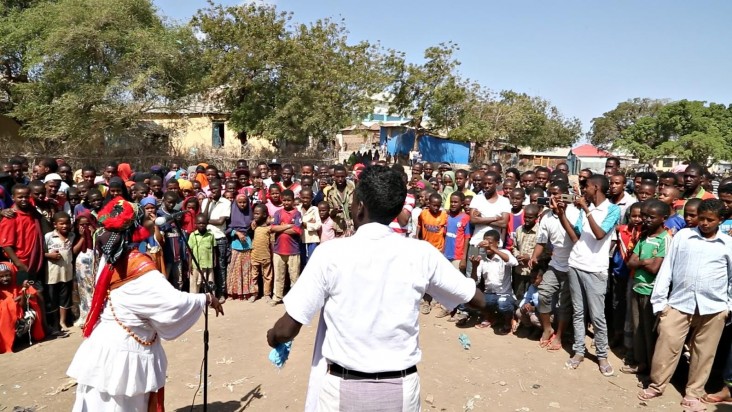- What We Do
- Agriculture and Food Security
- Democracy, Human Rights and Governance
- Economic Growth and Trade
- Education
- Ending Extreme Poverty
- Environment and Global Climate Change
- Gender Equality and Women's Empowerment
- Global Health
- Water and Sanitation
- Working in Crises and Conflict
- Disaster Assistance
- Political Transition Initiatives
- Conflict Mitigation and Prevention
- Countering Violent Extremism
- Disaster Risk Reduction
- Peacebuilding and Reconciliation
- Providing Safe & Secure Environments for Development
- Recovering From Crisis
- Resilience
- Tech Challenge for Atrocity Prevention
- World Humanitarian Day
- U.S. Global Development Lab

Providing stabilization support to local governments, civil society and communities previously under the control of al-Shabaab.
WHY USAID/OTI IS IN SOMALIA
The significant progress that Somalia had made in reclaiming territory from al-Shabaab (AS) since 2012 is under threat. The new Somali government’s focus on countering AS has yet to take shape, as security and political gains remain unconsolidated and AS maintains control and presence in areas of South Central Somalia. The Islamic State of Iraq and Syria (ISIS) is also exploiting those pockets of weak governance, further threatening Somalia’s stability. To ensure Somalia is not a safe haven for terrorists, the US government is supporting the momentum of the new government’s commitment to consolidating security and political gains, in order to reduce AS influence and ability to recruit and reestablish any semblance of governance and control over Somalia.
USAID/OTI’S ROLE IN SOMALIA
To support the political and security transition, USAID/OTI will minimize the conditions that enable violent extremist groups to destabilize Somalia. Working in front-line areas of Jubbaland State and South West State, USAID/OTI uses a flexible, cross-sectoral approach that partners with local government, civil society, and local communities, and amplifies such engagement though media and strategic communications. USAID/OTI’s objectives in Somalia include:
- Extending the presence of effective state authority in newly recovered areas
- Strengthening reconciliation initiatives
- Productively engaging at-risk youth
PROGRAM HIGHLIGHTS
- USAID/OTI supported local government efforts to establish presence in the recovered areas of Dinsoor in South West State and Baardheere in Jubbaland State. The program supported the rehabilitation of district headquarters, leadership and governance training for new local officials, government outreach events, installation of solar street lights, clean-up campaigns, rehabilitation of a community center and youth engagement activities in both locations. The efforts laid the groundwork for subsequent USAID assistance.
- USAID/OTI’s Government Outreach Week successfully brought together over 1,500 people and 19 ministries in the Jubbaland State capital of Kismayo and over 2,000 people and 21 ministries in the South West State capital of Baidoa. The events generated widespread media coverage and positive Somali social media reactions regarding government service delivery, particularly on drought and security.
- USAID/OTI’s support of four community dialogue sessions was recognized as the model for future community-based reconciliation projects in other regions. The program supported the Lower Shabelle Governor’s Office to replicate the same model of community-based reconciliation in several target locations.







Comment
Make a general inquiry or suggest an improvement.